By Emma Ryan
A DONEGAL man who was a crew member on the Derry to Iona voyage has recalled the incredible experience 60 years on from the momentous journey.
On June 9, 1963, after a week of rowing, a crew of 13 landed on Iona after completing the 100 mile journey in a 30 foot curragh, a simple canvas-covered boat.
The expedition from Derry to Iona, retraced the voyage made by Saint Columba 1,400 years beforehand, also in a curragh.
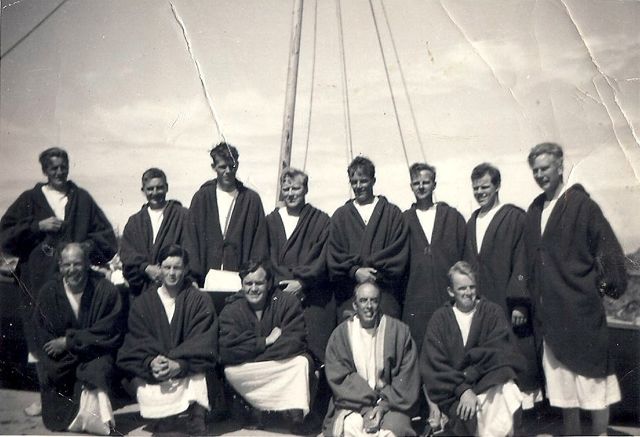
On June 9, 1963, after a week of rowing, a crew of 13 landed on Iona after completing the 100 mile journey in a 30 foot curragh, a simple canvas-covered boat.
Sponsored by the Church of Ireland, the 1963 voyage was considered a major event and took four years to prepare for.
Donegal man Jim Boyd, a curragh maker, built the 30 ft boat which was used for the voyage.
On Friday, Billy Patterson and Jim reunited with crew members Alistair Jameson and John Connolly in Bunbeg to celebrate 60 years since the momentous voyage, while also remembering the nine other crew members who have sadly died since the trip.
Joined by their family and friends, the men attended a church service in Bunbeg, which was celebrated by Reverent Liz Fitzpatrick.
The men fondly recalled the memories of the voyage which started all those years ago in Derry.
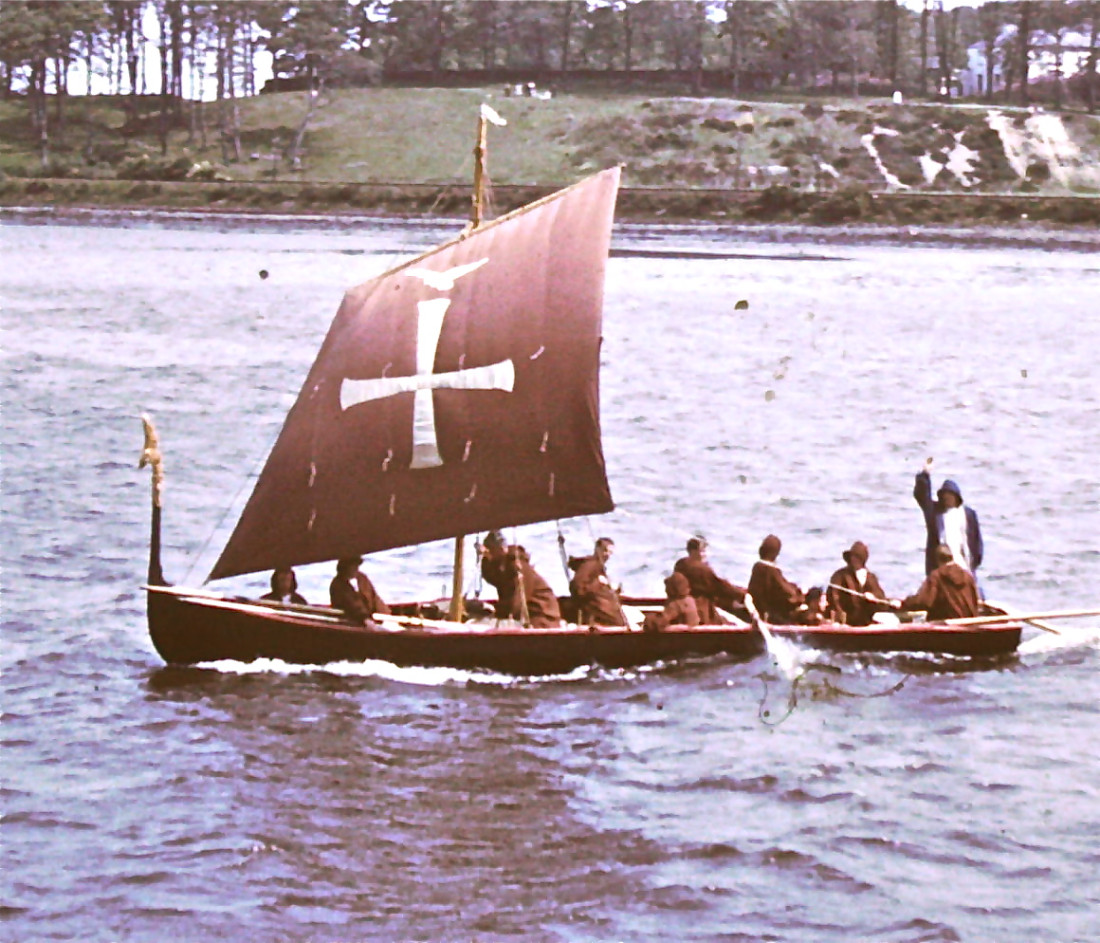
The expedition from Derry to Iona, retraced the voyage made by Saint Columba 1,400 years beforehand, also in a curragh.
Ahead of their departure, a service was held in St Columb’s Cathedral and the crew paraded through the streets.
Speaking to the Donegal News, Billy Patterson said he remembers hundreds of people lining the streets to see the crew off on their journey.
“The whole jetty was lined with people, there was hundreds of people out to see us off,” he said.
“It was a big deal.
“When we were parading and getting into the boat in Derry, we were wearing these brown robes, palm booties with hair on them from the West of Ireland and white bonnets.
“But as soon as we rowed out of sight and up the River Foyle, we pulled into the left and took it all off and put on jeans and jumpers.
“We didn’t need the robes again until we got into the bay at Iona.
“I remember when we were going past Magilligan we could hear a buzzing going past us and plops in the water.
“The army were in Magilligan and they were shooting and the bullets were coming out over the boat – they didn’t see us and we didn’t see them.
“Even if they had hit us, it would not have done any harm but it was a different time back then,” said Billy.
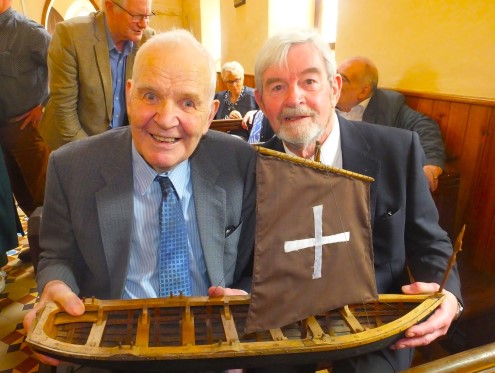
Two of those who took part in the voyage to Iona in 1963 Jim Boyd, Bunbeg who built the curragh pictured with Billy Patterson. They are pictured with a replica of the curragh. Pictures by Tommy Curran.
The voyage was a seven day event and the crew would row for half an hour and rest for half an hour.
The crew’s first stop after 11 hours of rowing was Islay, where they were greeted by a man who made them scrambled eggs and toast and provided a generous supply of Islay Mist Whiskey.
Billy said the crew experienced greet kindness while stopping at the various islands during their trip.
“After Islay, our next stop was Taransay and one of the Lords of Islands came down to visit us there.
“We then went to Colonsay, round to Mull and then on to Iona,” said Billy.
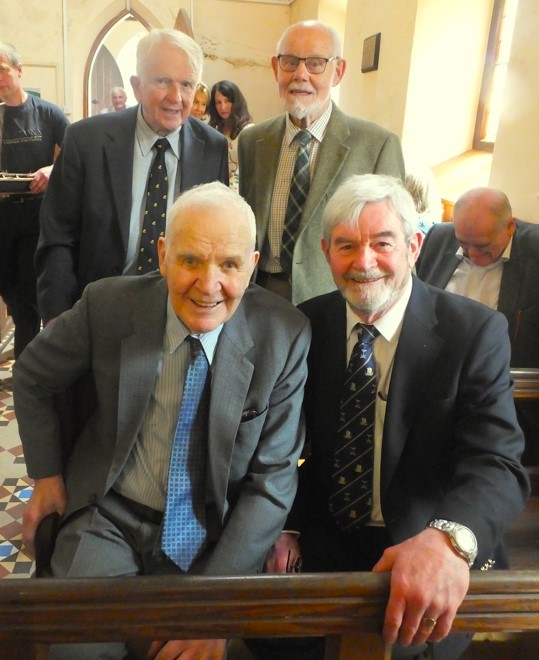
Four of the crew who travelled in the curragh to Iona and who were present at the service in St. Patrick’s Church, Bunbeg on Friday: Front: Jim Boyd and Billy Patterson, back: Alistair Jameson and John Connolly.
Overnight, the men brought the curragh onshore and turned it upside down and slept underneath it or on the sand.
Billy continued, “The figure head of the curragh was carved by one of the guys who was a real folklorist and it was quite a fantastic piece of work.
“Every morning we would tie a bunch of flowers to the figure head and in the evening we would scatter them in the water.
“The places we visited were wild
and there would be whale bones lying around.
“It was nearly like it was a different time but I suppose it was a different time to now.
“Back in the old days before phones and the modern ways, the only way people got news about what was happening outside their area was to go to the pictures.
“Movieton News would show the news which was happening around the world, and we featured on Movieton News in all the cinemas.
“It was quite a big deal at the time,” said Billy.
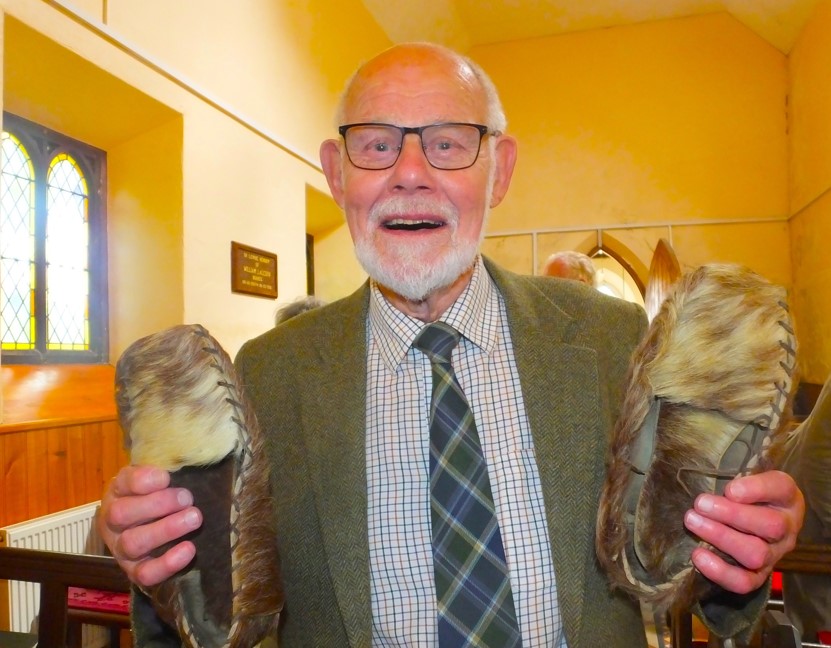
John Connolly pictured with the sandals they wore on the voyage 60 years ago.
During the voyage, there was a vessel which followed the curragh incase the crew required assistance such as food.
Luckily, the weather was kind and they ended up having a spare day which they spent exploring Fingal’s Cave.
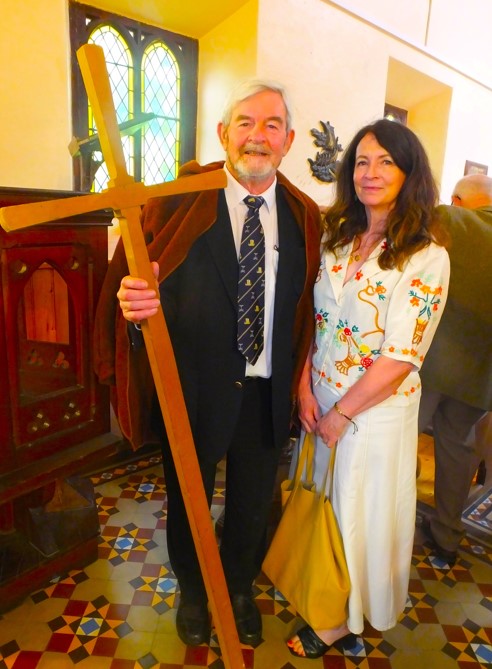
Billy Patterson with his wife Carmel. He is wearing the habit he wore on the voyage and holding the cross which they carried to the church on arrival in Iona 60 years ago.
“We were on the Island of Mull, waiting to go around it and go up onto Iona.
“So we were able to get on another boat and it took us up to Fingal’s Cave on the island of Staffa.
“It is made of the same basalt columns which are found at the Giants Causeway.
“We were in the cave and walking along singing and it was Wallace Clarke’s idea to strip off and jump in.
“It was a menacing place.
“I would say there are not too many people who have swam in Fingal’s Cave as there are barriers up now and people are no longer allowed in it,” said Billy.
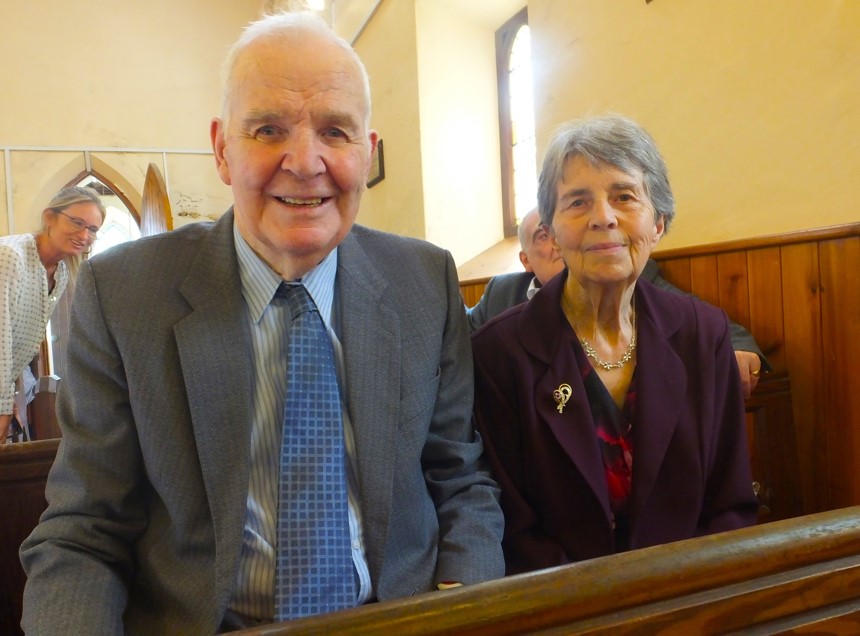
Jim Boyd [who built the curragh] with his wife, Audrey.
Doves were also released in an attempt to convey the news of the crew’s arrival back to Ireland.
“We were greeted by the Archbishop of Canterbury and it was lovely to meet him – he was a lovely man. There was a long procession up into The Abbey in Iona, which is a very famous abbey.
“There are dozens of kings from all over the world, mostly Scandinavian countries, buried on Iona.
“The Archbishop gave the address at the ceremony and after that, there were cups of tea and back onto the ship to go back to Ireland.
“The Devonia ship had brought a lot of family, friends and those who were interested from Ireland to Iona for our arrival so we got back on that ship and sailed for home.
“It was an incredible experience and it certainly does not feel like 60 years ago,” said Billy.









